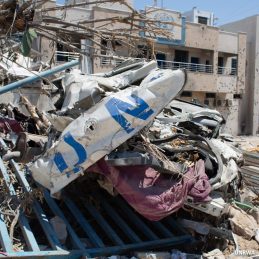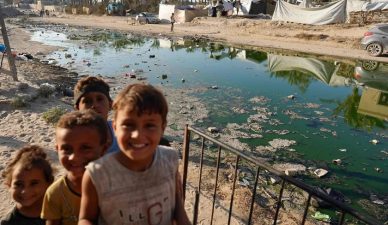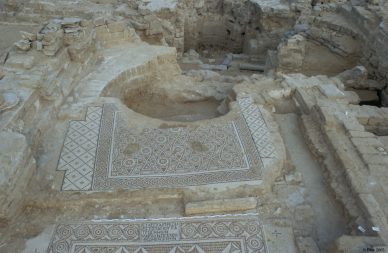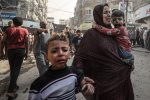GENEVA, (PIC)
Dominic Allen, United Nations Population Fund (UNFPA) Representative for the State of Palestine, described the situation in the Gaza Strip as a humanitarian hellscape after he had returned from his latest 10-day mission in Gaza.
The situation in the Gaza Strip is a humanitarian hellscape after six and a half months of Israeli military operations in Gaza where hospitals are exhausted in northern, central, and southern Gaza, he said.
Speaking to reporters at the United Nations headquarters in Geneva, via video conference from Jerusalem, Allen said, “What I witnessed is heartbreaking and cannot be described. We saw medical equipment being deliberately broken and destroyed. “Ultrasound machines, critical to help ensure safe deliveries, had their wires cut and their screens smashed.”
Mr. Allen said he travelled to Gaza regularly. For the most recent mission, he was there from 8 until 17 April. The mission of the United Nations agency for reproductive health was conducted with the World Health Organization (WHO), the United Nations Office for the Coordination of Humanitarian Affairs, and UNRWA.
According to the United Nations, the mission’s goal was to visit about 10 hospitals, including Al-Aqsa Hospital in central Gaza, which faces burdens beyond its capacity due to the large number of trauma patients (physical trauma injuries) and because the hospital is no longer able to provide reproductive care.
“I am terrified for the one million women and girls in Gaza now, especially the 180 women who give birth every day in unimaginably inhumane conditions,” the UNFPA official said.
Before the war, 15% of obstetric cases required emergency medical care, but this percentage has now doubled, according to some reports.
“These numbers have gone up,” Allen said. Some doctors say the complications associated with childbirth are now more than double what they were dealing with before. This is due to malnutrition, dehydration, and fear, all of which affect the pregnant woman’s ability to give birth safely and complete the full term of pregnancy.”
As for Al-Shifa Hospital, which was the largest hospital in Gaza, it was in ruins. In Rafah in the south, the Emirati Hospital, which is a lifeline for pregnant women in Gaza, supports between 50 and 60 births daily, including 10 and 12 cesarean sections.
The UNFPA mission, supported by the United Nations Demining Service, visited Nasser Hospital in Khan Yunis, from which Israeli forces withdrew weeks ago. The hospital has a maternity ward supported by the Fund’s teams.
“When we visited Nasser Hospital, we had to be careful – with the demining service – as we walked through the hospital entrance because of the unexploded ordnance,” Allen said, adding that he barely recognized the place he visited two months ago because of the extent of destruction.
Three shelter centers (former schools) run by the UNRWA were turned into emergency medical points to dispatch midwives to help pregnant women who cannot obtain prenatal care.
Allen expressed his concern about the possibility of a military incursion into Rafah – where about 1.2 million people reside – and its impact on the humanitarian catastrophe there.















